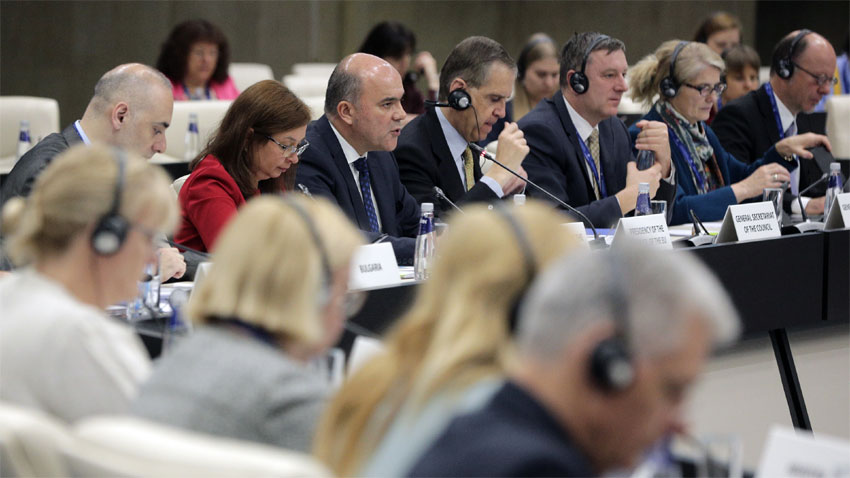"Unemployment in the EU has reached a record low level for the past ten years, but still the number of unemployed young people is big," European Commissioner responsible for employment, social affairs, skills and labour mobility Marianne Thyssen said at an informal meeting of EU social ministers, which was held in Sofia. The forum was part of the program of the Bulgarian Presidency of the Council of the EU. The focus of the discussion was placed on measures to promote lifelong learning, enhancing the skills and knowledge of the workforce, provide active support for employment and equal opportunities for the labor market. Emphasis was also put on proposals to promote integration of people in disadvantaged position in society and the labor market. The program of the informal meeting also included a visit to the Seventh European Social Entrepreneurship Forum, attended by many social enterprises from Bulgaria and six other European countries, presenting their work and innovation opportunities in this field.
“According to EUROSTAT data in February, the average unemployment rate reached 7 percent, which has been the lowest level since September 2008. Data prove that the economic crisis is already behind us, but its consequences still affect and hamper the employment of certain groups of people," said Minister of Labor and Social Policy, Biser Petkov and added:

“At the moment of stable economic growth, we need to focus our efforts and work on the preparation of the EU workforce, in line with the dynamic development of technologies and the digital economy in the future. The resources that Member States are targeting towards increasing workforce quality and access to education must be seen not as an expense but as an investment. We must offer European citizens a reliable and long-term direction in order to keep their confidence in the EU. The main focus during the meeting was the labor market realization of the older generation. We have also focused on policies to support employment, the integration of young people and long-term unemployed into the labor market. In Bulgaria in 2013 -2017 the unemployment rate among young people under 25 declined from 28% to 13%, which is almost 15% lower. Thanks to the implementation of measures for employment of young people in Bulgaria, about 100,000 young people have started their first job in this country in the past 4 years. Now the focus of our efforts must be directed at representatives of vulnerable groups in the labor market and people in remote underdeveloped regions.”
According to data from the latest unemployment surveys in Europe, over 3.5 million young people cannot find their way into the labor market. The number of the long-term unemployed European citizens is also impressive - over 8 million people. The economy has been improving and now is the time to remember that people need to feel this positive change. Not because it is fair this way, but because everyone should be involved in this process, Marianne Thyssen said in Sofia.
English: Alexander Markov
Photos: BTAThere has been an upsurge in the economy in every region of Bulgaria, the effects of the Covid crisis have been overcome, tourism has fully recovered, which is evident in Bulgarian seaside regions and spa resorts - this is the conclusion that is drawn..
More than EUR 1 billion will be invested in agriculture and rural areas in Bulgaria in 2025. According to a decision by the Monitoring Committee of the Strategic Plan for Agricultural Development, the funds are aimed at modernizing agriculture and..
Bulgaria’s industry is being transformed in the direction of high added value productions, reads an analysis by the Institute for Market Economics. This tendency is best manifested in computer science, electronics and optics which account for the..

+359 2 9336 661
